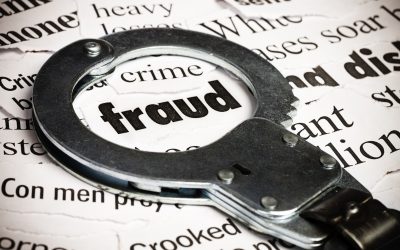Kish Parella, Class of 1960 Professor of Ethics and Law, Washington and Lee University School of Law
In the wake of the Russian invasion of Ukraine, media outlets and other organisations identified, aggregated and publicised company responses to the invasion. They specifically focused on whether companies chose to “stay or leave” Russia through decisions to postpone new investments or projects, close their stores, suspend operations and even exit Russia altogether. The Yale School of Management (SOM) took it a step further by grading companies based on these responses. The Yale SOM database provided an A grade to “companies totally halting Russian engagements or completely exiting Russia.” In contrast, companies received an F grade for “just continuing business-as-usual in Russia.”
This database is among the factors that contributed to reputational risks for companies following the Russian invasion of Ukraine. It caught media attention, increasing the publicity that companies received for their “stay or leave” decisions. It is also possible that the reputational consequences of these decisions may have impacted company financial performance.
But aside from questions of impact, corporate managers should focus on two questions:
- Why did some companies leave Russia while others remained?
- How can these explanations improve a company’s crisis preparedness?
Explaining Stay or Leave Decisions: Demand and Supply Factors
In a recent paper entitled “Corporate Self-Sanctions,” I explain company “stay or leave” decisions with reference to demand and supply factors. Demand factors refer to pressure imposed by corporate stakeholders to take or refrain from certain acts in response to the Russian government’s conduct. Consider consumer use of social media to threaten boycotts against companies that refuse to leave. Or public demands made by civil society actors that companies comply with their responsibilities under international guidelines. Governments also pressured companies through sanctions restricting or eliminating business opportunities. All of these groups pressured companies to “take a stand” on the Russian invasion by suspending or terminating their operations. But these demand factors alone cannot explain “stay or leave” decisions because companies subject to similar stakeholder pressure still made different decisions. For example, some fast food chains immediately suspended their operations following the invasion while their competitors stayed open. It is hard to believe that these differences arose because consumers of the former company cared more about the invasion compared to those of the latter. In reality, the same consumers likely purchase from both companies.
Instead, many of the decisions to “stay or leave” are influenced by supply side factors that facilitate or inhibit a company’s ability to comply with the values and preferences of its consumers and other stakeholders. These factors include business model, contract design, board governance, political risk insurance, investment dispute resolution mechanisms, and organizational preparedness.
For example, business model is important because it can inhibit company decisions to exit a crisis. For example, following the Russian invasion, some companies explained that they were unable to scale back or terminate their business in Russia because they chose to participate in the Russian market through a franchise model that limited their decision-making regarding store suspension. This decision-making is further limited when contract design does not afford a company with sufficient flexibility to respond to a crisis. Board governance is also critical and can leave a company in a reactive position when the board did not sufficiently identify, allocate, or oversee conflict-related risks. The Russian invasion reminded companies of the reputational risks associated with developing a plan in the wake of a crisis. Corporate managers faced significant pressure from many sources to announce a response, usually on a short timeline. Each of these responses was also subject to reputational judgments. While consumers cared about whether a company stayed or left Russia, surveys also suggest that consumers also care about how a company exits, such as providing assistance to affected employees. These are among the factors that explain why some companies received an A on Yale SOM’s website while others received an F.
Preparing for the Next Crisis: Invest in Supply Side Factors
What can corporate managers do today to prepare for the next crisis and its associated reputational risks? My analysis of demand and supply factors suggest the following:
- Evaluate business model on the allocation and centralisation of crisis policymaking regarding business suspension, termination, and exit.
- Evaluate contracts for flexibility in responding to a crisis, including ability to suspend performance obligations. Contract design is particularly important if a company chooses to keep a business model that can create problems in a crisis, such as demonstrated by franchise agreements in the wake of the Russian invasion. Consider the potential for contractual innovation to address conflict-related risks, such as allocation of decision-making for choices that can lead to reputational judgments.
- Evaluate board governance for identification and allocation of oversight for all significant conflict-related risks, including reputational risks associated with crisis response
- Invest in strategic partnerships with domestic or international humanitarian aid organizations to improve company crisis-preparedness. This is particularly important for well recognized brand companies, whose responses will be watched closely following a crisis, and those companies that trade in life-sustaining products and services, like food, water, shelter, and medicine because society will have high expectations for them to do something. Many companies gained international attention by offering aid to those affected by the Russian invasion. In many of these examples, there is a close nexus between the aid offered and the products and services sold by the company: Airbnb offered housing assistance. Travel companies offered assistance in transporting Ukrainian refugees to safety. The nexus between humanitarian need and a company’s business lines suggest that companies in particular industries can predict that they will be under the spotlight when the next crisis emerges. Aid organizations can prove valuable partners who can offer valuable expertise, assist in delivery of aid and collaborate on strategic initiatives.
This last suggestion is particularly important. The Yale SOM website categorised and graded companies on their business operations in Russia. It could have easily done the same for a company’s responses to the humanitarian crisis in Ukraine. Indeed, a number of organisations provided lists of companies that offered aid to Ukrainians but such lists lacked the comparability features of the Yale SOM database, thereby limiting the effect of reputational sanctions on those companies that chose not to do anything. However, in future, these or other organisations may aggregate, classify, and grade companies on the aid they offer in the next crisis, perhaps focusing on those companies with the largest global presence and/or business lines in life-sustaining products and services. Such a database could create significant reputational risks for companies that are unprepared to offer meaningful aid.




0 Comments